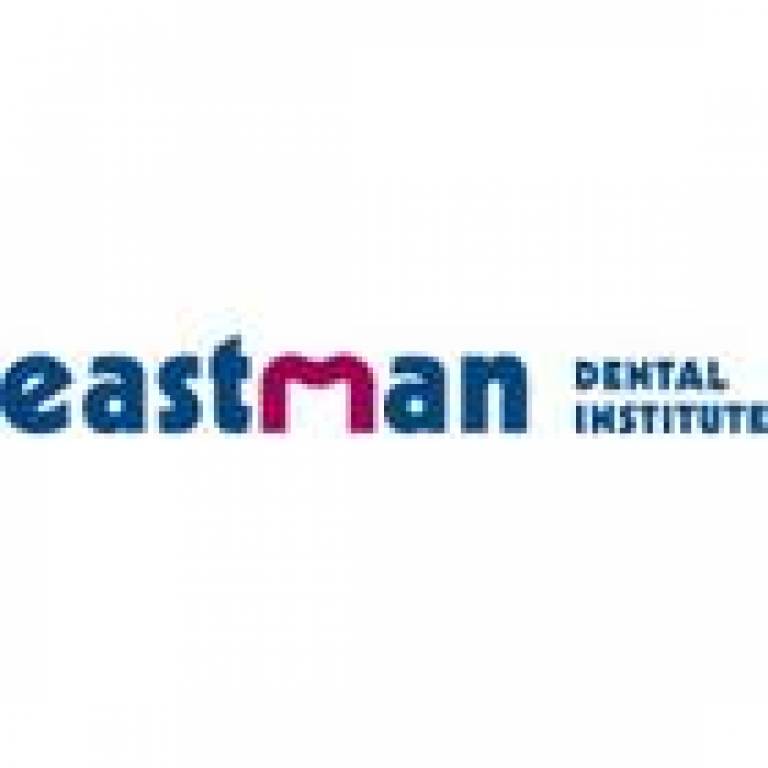UCL research reveals increase in child tooth decay
16 April 2009
Links:
 timesonline.co.uk/tol/life_and_style/health/article6069971.ece" target="_self">Article in the British Dental Journal
timesonline.co.uk/tol/life_and_style/health/article6069971.ece" target="_self">Article in the British Dental JournalDr Paul Ashley
UCL Eastman Dental Institute
Guardian: 'Rotten teeth putting more young children in hospital'
Times: 'Tooth decay putting 30,000 children in hospital every year'
Research carried out at the UCL Eastman Dental Institute has shown that increasing numbers of young children, particularly from poor areas, are being taken into hospital to have rotten teeth removed.
The findings, published in the current issue of British Dental Journal, demonstrate that while children's teeth are in general healthier than in the past owing to fluoride toothpaste and fluoride in the water supply in some areas, there has been a worrying rise in serious problems, chiefly among the most deprived.
Professor David Moles, now professor of oral health services research at the Peninsula Dental School, and Dr Paul Ashley (UCL Eastman Dental Institute), head of paediatric dentistry, analysed hospital data between 1997 and 2006 which has highlighted a major health issue requiring further investigation.
More than 470,000 children were admitted to hospital for treatment relating to their teeth over the nine-year period. Since some children were admitted more than once, there were in excess of half a million NHS episodes of care for dental conditions in children in England over the time studied. Half of those were for tooth decay (dental caries) and 80% resulted in extraction.
Professor Moles and Dr Ashley are concerned by this steady increase in figures, which represents a 66% rise in extractions for caries over nine years. The researchers point out that in most cases, the child would have been subjected to a general anaesthetic, an unpleasant and occasionally fatal situation for the child. The peak age for extractions owing to rotten teeth was five.
As reported in the Guardian, Professor Moles commented: "The findings of our study are very worrying. If rates of caries and other dental infection are steady, why is there such a marked increase in the number of children being admitted to hospital for dental treatment? And why is it that more and more children are being electively admitted to hospital for extractions? Clearly these questions need to be answered in order to cut the number of admissions, improve dental care for children and ultimately reduce the financial burden to the NHS."
The research also demonstrates that more episodes of care were provided for children who lived in relatively deprived areas compared to more affluent regions, where children were 33% less likely to require emergency treatment.
Dr Paul Ashley, speaking to the Guardian, added: "Two aspects of the study are particularly worrying - the rise in the number of general anaesthetics being given to children, and the widening gulf in dental health between social classes.
"General anaesthetic can be fatal to children, which is why post-2000 the administration of general anaesthetic to children was moved from the primary care sector to secondary care, where there is a back-up should anything go wrong. Priority must be given to research that examines the reasons why the issues highlighted by our study occur, and this is to be our next step."
Images: Professor David Moles (top) and Dr Paul Ashley
UCL Context
The UCL Eastman Dental Institute, the largest postgraduate dental academic centre in Europe, is currently involved in the education and training of some 13,000 dentists and dental care professionals. It was the first dental school to receive the Queen's Anniversary Prize for Higher and Further Education.
Interntionally-renowned staff undertake cutting-edge clinical and translational research on biomaterials and tissue engineering, and on microbial diseases, as well as providing specialist clinical care.
Recent news:
UCL scientists develop novel approaches for killing MRSA and E.coli
Eastman research gives green light to new anti-bacterial laser treatment
England's poorest suffering increasing levels of severe dental disease
 Close
Close

